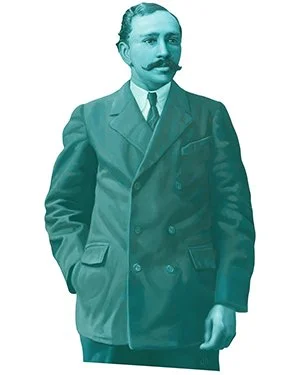Edward P. McCabe by Joel Daniel Phillips. Oil on Panel.
Edward P. McCabe (October 10, 1850 – March 12, 1920) was an African American politician, businessman, and land agent who became one of the most prominent figures in the movement for Black self-determination in the American West. Born in Troy, New York, McCabe trained as a lawyer and worked in New York City before heading west after the Civil War, seeking opportunities for African Americans in a post-slavery society.
McCabe first settled in Kansas, where he became deeply involved in politics during the Reconstruction Era. He was elected as Kansas State Auditor in 1882, making him one of the highest-ranking Black officials in the U.S. at that time. McCabe is perhaps best known for his ambitious efforts to create an all-Black state in Oklahoma. As a land promoter, he encouraged African Americans to migrate to Oklahoma Territory, where he founded the town of Langston in 1890, named after the renowned Black educator and politician John Mercer Langston. Langston was one of several Black towns that McCabe envisioned as part of a larger plan to establish a self-sustaining Black community free from the oppression and discrimination prevalent in much of the United States.
Though McCabe’s dream of an all-Black state never fully materialized, his efforts helped foster the growth of Black settlements in Oklahoma and contributed to the establishment of Langston University, which still exists today. McCabe’s work in empowering African Americans through land ownership and political participation remains a significant chapter in Black history.
